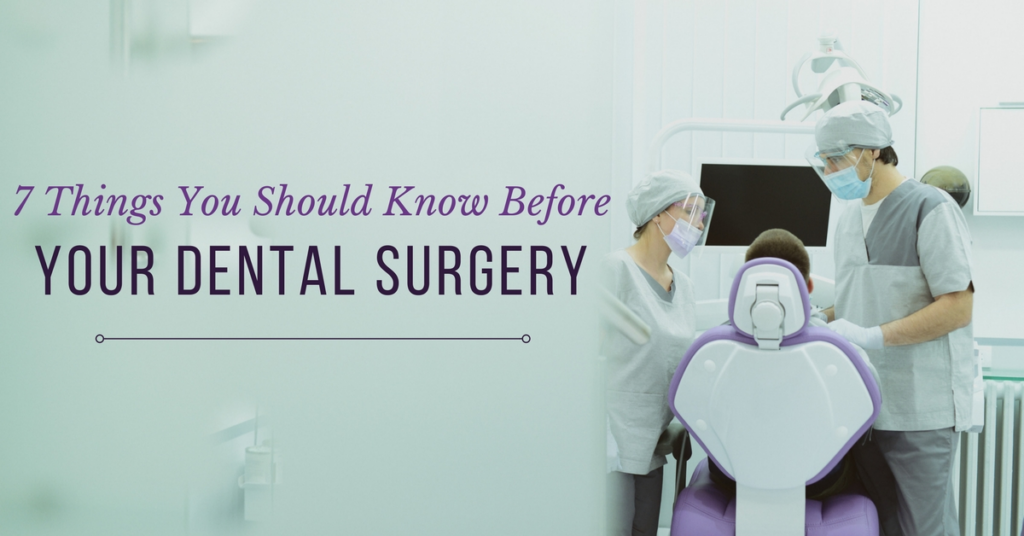When you’re preparing for oral surgery, you may be wondering how much food you can eat before the procedure. Oral surgery is typically performed on an outpatient basis, so it is not necessary to fast prior to your appointment. However, you should not consume any food or drink that would affect your ability to swallow safely during the procedure.
In this guide, we review: How many hours can you not eat before oral surgery, dos and don’ts before tooth extraction, can I drink water before oral surgery, and no sleep before tooth extraction.

Can You Eat Before Tooth Extraction
Fasting before dental surgery is important to reduce the risk of complications during the procedure. Your dental surgeon will typically recommend fasting for eight to 12 hours before the surgery, with the exception of diabetic patients who may need to adjust their fasting schedule. It is crucial to follow these guidelines and avoid eating or drinking anything, including water, to ensure a safe and successful surgery. However, it is important to continue taking any necessary medications as prescribed, with only a small sip of water if needed. By following these instructions, you can help ensure a smooth and successful dental surgery experience.
There are a few ways to determine how much food you can consume before oral surgery:
-You can count on one hand how many hours you will be fasting before the procedure (for example, if it’s three hours).
-You can use a toiletometer to measure the amount of time that has passed since your last meal or liquid intake.
-You can calculate the number of hours by using your height and weight and dividing that by 880 calories per pound of body weight.
The goal of this blog is to help you understand the importance of eating before oral surgery.
When someone has oral surgery, they need to be able to eat and drink normally for at least 2 weeks after the procedure. If you have any concerns about your ability to do so, please consult with your surgeon.
You may be tempted to skip meals or take liquids with meals in order to reduce discomfort while recovering from an oral surgery. While this can help reduce pain and swelling, it can also lead to dehydration and other complications.
If you are in pain after your procedure, speak with your doctor about how much pain medicine you should take before eating or drinking anything.
Oral surgery can be a pretty scary endeavor, especially if you’ve never had it before. You’re going to have to go under the knife, and chances are that you might not know exactly what to expect afterward. So we’re here to help! If you’re planning on having oral surgery, or even just thinking about it seriously, there are some things you should know.
First of all, how long does oral surgery take? Oral surgeries take anywhere from 2-4 hours for each procedure, depending on what type of surgery you’re having done. (For example: Botox injections can take only 30 minutes.) You’ll also need to stay overnight in the hospital after your procedure is complete—this gives the nurses and doctors time to get everything set up before they move you into recovery mode.
Another thing worth considering is: What kind of anesthesia will they use? Oral surgeries are usually performed with general anesthesia (gas), but local anesthesia (lidocaine) may be used if the doctor thinks that would help reduce any potential discomfort after your procedure has been completed.
And finally, what if something goes wrong during my surgery? This is one of the most important questions we get asked here at [company name], and one we don’t want anyone to think they can skip
The most common oral surgery to remove a wisdom tooth is called an extraction.
When you have wisdom teeth, it’s not unusual for them to start growing in your mouth. Depending on the person and their age, this can happen anywhere from early childhood up through the twenties.
If you’re wondering how long you can go without eating before getting a wisdom tooth extraction, the answer is 2-3 days.
Drugs to Avoid Before Tooth Extraction
While tooth extraction is an option for many dental problems, it is important to take the time and care needed to ensure that it is done properly, without any complications. It is also important to make sure that the procedure is safe and effective, so that it does not cause any long-term damage or discomfort.
Below are some drugs that should be avoided before tooth extraction:
-Phenothiazines (e.g., Chlorpromazine): These drugs can cause drowsiness and sleepiness, which may make it difficult for you to stay awake during the extraction process. Also, these drugs have been shown to increase the risk of bleeding during a dental procedure by about 20 percent—so if you are taking one of these medications, discuss alternatives with your dentist first!
-Anti-psychotics (e.g., Olanzapine): These drugs are highly sedating and can make you sleepy during a dental procedure. If you take them before an extraction, it could interfere with your ability to stay awake through the procedure or even make you fall asleep during it!
Tooth extraction is a difficult procedure, but there are a few drugs that may help you avoid some of the pain.
The first drug to avoid is an opioid. Opioids are drugs like morphine and codeine that relieve pain by binding to opioid receptors in your brain and spinal cord. If you have a tooth extracted, these drugs can be given to you intravenously (IV), which can help with the pain for a short time. However, they can also cause constipation, nausea, or vomiting.
Another drug to avoid is alcohol. Alcohol can make you drowsy and slow down your reaction time while undergoing anesthesia, making it more difficult to feel when your teeth are being pulled out of your mouth. Drinking alcohol any time before or after having an extraction will also increase your chances of developing dry socket—an infection around the extraction site caused by debris that collects in the socket after surgery—or periapical abscesses (swelling).
If you don’t want to give up drinking altogether, try taking small sips throughout the day instead of one big drink once before anesthesia begins.
Dos and Don’ts Before Tooth Extraction
No one is ever excited to undergo tooth extractions in Excelsior, MN, even though they are in pain. However, tooth extractions are usually recommended when there is no other option. For instance, wisdom teeth can partially erupt or, even worse, fail to erupt (impact). Sometimes, the wisdom teeth might come in, and the jaw is small and cannot accommodate it, leading to overcrowding.
In all the above scenarios, there is no option but to remove the tooth. However, the procedure shouldn’t be all doom and gloom. If you know what to expect and prepare yourself as you should, there is nothing to worry about.
Without proper preparation, you might feel the procedure is too demanding, and complications might even arise post-surgery. To avoid unwanted outcomes, you should understand the dos and don’ts before wisdom teeth extraction.
Do Ask Questions
You will have no better opportunity to learn more about dental extraction than when you sit one-on-one with our dentist near you. During this visit, our dentist will also examine your teeth to determine whether it is necessary to undergo a tooth extraction.
Therefore, you can compile a list of questions that you might have concerning the procedure. There’s no dental question that our dentist will not answer.
No question is deemed foolish. It will be our honor to ensure that you are comfortable and understand what you are getting into. It’s your body, and it will be best if you understand the nature of the procedure that you are about to undergo.
Do Discuss Anesthesia and Painkillers
Since wisdom tooth extraction is an invasive procedure, there will be a need for anesthesia or even sedation. Anesthesia is essential since it numbs the area to ensure that you are not in pain throughout the procedure.
Thus, you must discuss the substances used during the extraction with our dentist. It is better if you have been sedated before and know what works for you. You can share with our dentist about your experience and if there are any side effects. All we desire is to make your experience stress-free.
Also, you will need painkillers post-extraction, so if you prefer, it is a good time to tell our dentist.
Do Compile Your Medical History
Your medical history is an important part of the initial appointment. Our dentist needs to know who you are and the state of your overall health. You shouldn’t leave any details out, so you might need to disclose any health issues you might have, such as:
Besides giving a list of any health issues you might have, you must also share a comprehensive list of the medication you take. Do not exclude any vitamin or herbal supplements that you may be taking.
The list of medications you are taking is vital since some drug interactions might cause undesired side effects. Therefore, this will help our dentist know what to prescribe. Also, you might be taking medication that might complicate the procedure, such as blood thinners.

Don’t Smoke or Drink Alcohol Prior to Wisdom Tooth Extraction
Smoking is a habit that has detrimental effects on every part of your body. Therefore, it will affect your mouth and the rest of your body. So when you smoke, the chemicals inhibit healing.
It would help if you didn’t smoke for about 12 hours before the procedure. Ideally, it would help if you stopped or even reduced smoking some days before, since tobacco’s effects can last up to two weeks after you stop smoking.
On the other hand, alcohol will also affect healing since it increases blood pressure and might not help the surgical site form clots fast enough.
Don’t Eat Anything Before Extraction
It is recommended that you don’t eat anything about 12 hours before surgery. The mandatory fast is no punishment, but it is done to manage nausea. Anesthesia causes nausea, so if you have eaten a few moments before the procedure, you might leave your lunch on the dentist’s chair!
Don’t Forget to Organize the Transport
After the procedure, you might not be able to drive yourself home. The effects of anesthesia might take up to 24 hours after the procedure. So, your reflexes will be compromised. Just get someone to take you home.
can i drink water before oral surgery
Oral surgery can go a lot easier if you put in a little preparation. If you know what to expect ahead of time, you may be more at ease about what you need to have done.
Your process should start long before you walk in for your appointment.
1. Be informed. Schedule time with your dentist or oral surgeon to make sure you understand the reasons for your procedure. Find out the risks and benefits of what you’re doing. Bring questions to ask, too.
2. Make sure you have a ride. If you’re getting sedation, including nitrous oxide, you’ll need someone to drive you home. Anesthesia can impair your judgment, which makes it unsafe for you to operate a car. Ask a friend or family member to give you a ride. If nobody you know can do it, you can take a cab or use public transportation. If neither of those options are available where you live, ask the doctor’s office if it’s possible for you to wait there until it’s OK to drive.
3. Fast. If you’re going to be sedated, don’t eat or drink anything, including water, after midnight of the evening before your surgery. This reduces your risk of aspiration, a rare but serious complication of anesthesia that fills the lungs with the contents of your stomach. If you need to take medication during your fast, you can have a small sip of water, if need be.
4. Bare your arms. Wear short sleeves if you’re going to have sedation for your procedure. It’ll help nurses take your vital signs, give you your IV, or put blood pressure cuffs on you so they can monitor you during the surgery.
5. Bring a box. Have a container with you to store dentures, partial plates, or removable bridgework while the procedure is being performed.
6. Give yourself time. On the big day, arrive at least 20 minutes early. This will give you time to complete any last-minute paperwork. You’ll also have a chance to relax before your surgery happens.
Right before the work begins, a nurse will take your vital signs. If you have any lingering questions about your procedure, this is the time to ask them.


